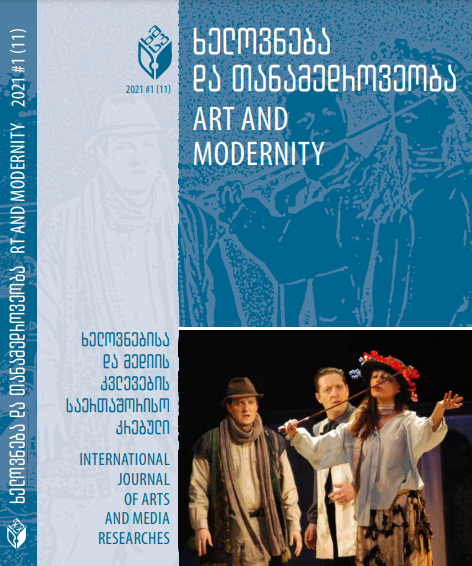Cruelty and Tolerance Through the Lens of New Wave Of Georgian Cinema
Main Article Content
Abstract
It is not easy to be in a society that has “its own demands”, that does not love those who are diff erent from others, who do not behave, think, talk, or look like others do. They wear earrings or are dressed in Chokha. It does not understand, does not see and accept when someone begins to demolish the frames. Society creates the condition to live “the way you ought to live,” but you cannot live “that way.” It is society that is not tolerant, not because it cannot be tolerant and supportive, but because it cannot imagine otherwise. It does not know otherwise. It was taught this way, raised so, trapped in such a way, and as a result, it continues to live this way for itself or others.
The newest Georgian cinema and a new generation of filmmakers represent a multifaceted spectrum of modern society, modern people, in most cases, young people, their lives and their spiritual problems. Overall, they create a portrait of harsh, and in most cases, brutal, ruthless and intolerant, and, rarely, supportive society.
Levan Akin’s “And Then We Danced”, Gigisha Abashidze’s “Neighbors”, Lasha Tskvitinidze’s “I Am Beso”, Nana Ekvtimishvili’s “Long Bright Days” and others highlight the importance of youth’s choice in light of social problems. They tell the stories of those people, who are within the bounds of preconditions and specific events and with their personal decisions they must determine their own and, perhaps the future of the country.
